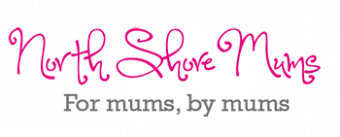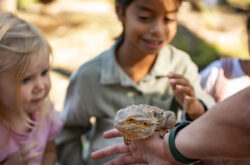Starting solids with a new baby can be an incredibly stressful time for a new mum. We get bombarded with information about how to handle this crucial stage, and it can be overwhelming – especially when you are completely sleep deprived and emotional! Leading Paediatric Dietitian Karina is here to give you all the latest info in simple and practical terms.
As mums, all we want is the right information in simple terms, so that we can best nourish our children, setting them up for a healthy future! Here are some key things to focus on when your baby is starting solids.
Seven tips for starting solids

Transitioning from milk to solid food can be a tough journey
1. Variety and repetition
Research tells us that when our children are exposed to a greater variety of foods when they are young, it leads to a greater acceptance and broader intake of foods as the child develops.
Many us will have heard that babies need 10-15 exposures to a new food before they necessarily accept it and this is because babies need to learn about a food and develop a trust for it before the necessarily accept that food.
We need to remember that we adults have been on this earth a lot longer and already know and trust a food, but babies haven’t! As with every aspect of their life, it’s a journey of development and exploration and food is no different. Learning about food is certainly a journey, babies need to see, touch, smell, taste foods many times before they necessarily trust and eat it.
Often our expectation is far too high and is not matched up to where the baby is at. This creates a lot of stress and angst. I know that I was guilty of this with my kids– sometimes giving up after bubs has refused a food twice, but we need to remember that babies might need many more exposures before they give a particular food the green light.
2. Allergenic Foods
Things have changed over the past few years and we now need to be making sure that our babies are given all the allergenic foods (milk, soy, wheat, fish, egg, nut) within the first year of life (once solids have been introduced somewhere between 4-6 months). Giving it to them before the age of 1 will actually reduce their risk of developing a food allergy. The evidence is particularly strong for egg and peanut.
Once the food has been introduced into their diet, it is recommended that bubs have it weekly to minimise the risk of a food allergy developing. For more information on this topic head to the ASCIA website.
Note: if your baby already has an existing allergy, dietary advice is different and you should consult a paediatric dietitian for more individualised advice before starting solids.

North Shore baby, Brooke, at 6 months, enjoying starting solids
3. Vitamin D
Vitamin D deficiency is becoming more common in Australia and is something we need to be mindful of in babies too. In many developed countries there is the suggestion of the rising incidence of rickets. A number of countries are now supplementing infants with Vitamin D, and this has its merits, however it is still not a national recommendation in Australia.
Vitamin D is primarily obtained from sunlight exposure (Ultraviolet B radiation) and historically only approximately 10% is attributed to dietary sources of Vitamin D. However, when sun exposure is inadequate to maintain Vitamin D status, dietary sources make a small but useful contribution.
Practical strategies to increase dietary Vitamin D intake include- consuming fish weekly – such as salmon, tuna, barramundi, basa, hoki, dory. Other good sources of Vitamin D (and choline) are egg (specifically yolks). Mushrooms are also an excellent source of Vitamin D2. The Vit D content increases significantly if mushrooms are left out in the midday sun for 1-2 hours. Some margarine and butter are fortified with Vitamin D, but many aren’t. The Vitamin D content of many other Australian foods are still unknown and need to be tested further.
4. Sugar
We shouldn’t be adding sugar or honey to baby food as it increases the risk of dental caries and infant botulism (honey <1 year is a risk factor for infant botulism). Another important reason for limiting all foods with added sugar is to reduce the development of a “sweet tooth” which may lead to a preference for high sugar foods later in life.
Let’s avoid buying products with added sugar for babies, instead sweeten baby food with fruit. All juice should be avoided unless bubs is constipated.
5. Salt
Salt should not be added to foods for babies. This is an important safety issue as babies’ kidneys are immature and unable to excrete excess salt. Instead food for babies should be flavoured with herbs and spices, which will not only add flavour, but are rich sources of antioxidants and other nutrients.
6. Iron
To reduce the risk of iron deficiency in babies and young children, we need to encourage iron-containing foods as the first foods. This is important for neuro-cognitive development.
Iron containing foods include iron-fortified cereals, meat and poultry, tofu, legumes, nuts and seeds. The iron from plant sources isn’t as well absorbed, however pairing it with Vitamin C rich foods, increases the absorption by up to 70%. Vitamin C rich foods include citrus, strawberries, kiwi, tomato, red capsicum, parsley and broccoli).
7. Fibre/Gut Health
A good fibre intake when introducing solids helps to feed the good bugs in the baby’s gut, which in turn supports the development of a healthy robust immune system.
For this reason, we need to be giving our babies fibre rich plant foods from early on. Practical strategies include giving them wholegrain breads and cereals, keeping the skin on fruit and vegetables where possible (grating or pureeing into foods are fine). Nut butters, seeds (think chia, flaxseed) and legumes are other great sources of dietary fibre to include regularly.

You can make it to fully-fledged eater with just a few tips from experts like Karina Savage
Karina’s Webinar: Starting Solids
For more support and all the details about starting solids with your baby, Karina is giving a webinar, “Introducing Solids Better in 2020” on Friday 18 September at 12:30pm AEDT. Click here to register your spot. You’ll also have access to the live replay.












